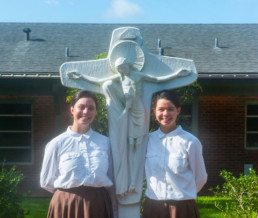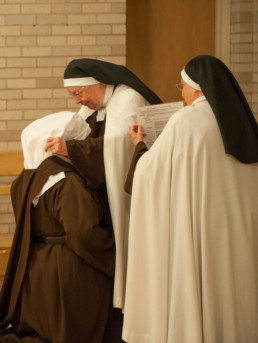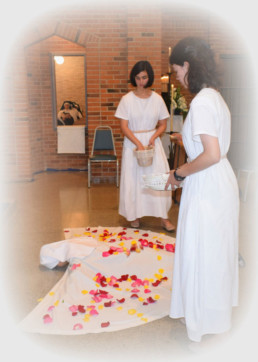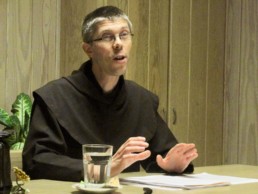What is Formation?
“Since the very purpose of consecrated life is conformity to the Lord Jesus in his total self-giving, this must also be the principal objective of formation. Formation is a path of gradual identification with the attitude of Christ towards the Father” (Vita Consecrata #65).
Seeking the Face of God in prayer and in the atmosphere of the cloister lies at the heart of the wholly contemplative vocation. It is a radical response to the gift of love granted to those whom the Father has called and chosen for this special mission. Since this particular following of Christ is a life-long journey that requires a response of the entirety of the person, time is needed for assimilation and a genuine discernment on the part of the candidate and the community. For this reason, the initial stages of formation–from Aspirancy to the definitive commitment of Solemn Vows–spans a period of 9 to 12 years.
“Religious formation is at the service of the person and the grace of her vocation throughout her life…. While it is true that this formation, particularly at the beginning, involves a certain amount of doctrinal and spiritual instruction, it consists above all in introducing a person into the living reality of Carmel. This was the way that the Lord acted with his disciples when he invited them to come and see, and to experience what he himself was living” (Ratio Institutionis Monialium OCD #23).
Stages of Formation
Formation takes on different stages as time progresses, deepening one’s commitment to the vocation of Carmel. Read more about each and their significance.






